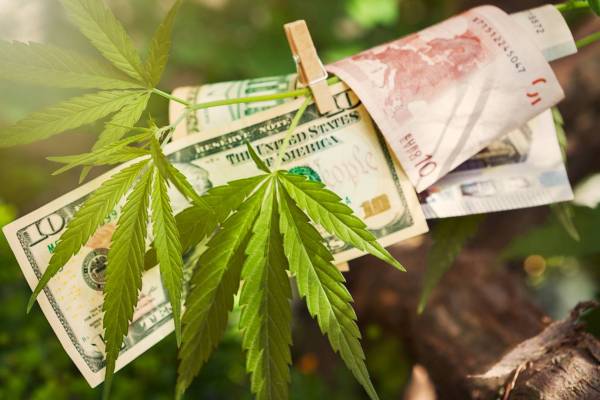You are here
Home 🌿 Recreational Marijuana News 🌿 Canadians are spending billions on cannabis, but mostly on the black market, Statistics Canada reports 🌿Canadians are spending billions on cannabis, but mostly on the black market, Statistics Canada reports

It’s been nearly half a year since Canada legalized and began regulating sales of recreational cannabis.
During that time, Statistics Canada has monitored spending on the drug, and last Friday (March 1), shared its latest results.
“Household spending on cannabis totalled $5.9 billion (in nominal terms) in the fourth quarter, with illegal cannabis accounting for $4.7 billion and legal cannabis $1.2 billion,” reads a Statistics Canada summary of the data. “Cannabis accounted for 0.5% of total household spending, and non-medical cannabis accounted for 11.2% of spending on alcohol, tobacco and cannabis in the fourth quarter.”
While cannabis is now available legally across Canada (theoretically, at least), it appears that roughly 80 percent of consumers continue to purchase it illegally.
Further down in Statistics Canada’s report, the federal agency provides a hint as to why this might be the case.
“Data collected on the Statistics Canada crowdsourcing website StatsCannabis indicate that the average all-in market price paid for legal cannabis flowers was $9.70 in the fourth quarter of 2018,” it reads. “The corresponding average price of illegal cannabis was $6.51, lower than the price of legal cannabis by 32.9%.” (Statistics Canada suggests that these numbers be “interpreted with caution” as they rely on self-reported data submitted via a website.)
In Vancouver, the city has been slow to issue business licenses that allow dispensaries to operate legally.
While Vancouver has regulated storefront cannabis sales since the summer of 2015, the dozens of shops around town remained in violation of federal drug laws and, after Canada legalized cannabis in October 2018, in violation of regulations included in the country’s new Cannabis Act.
In January 2019, Evergreen Cannabis at 2868 West 4th Avenue became the first cannabis dispensary in Vancouver to secure a business license issued after the city amended regulations in response to Parliament’s passing of the Cannabis Act. It began selling cannabis in full compliance of all three levels of governments' rules and regulations on January 5.
While Statistics Canada says that in 2018, 80 percent of cannabis transactions were still illegal, a February 2019 Bank of Nova Scotia report suggests that the percentage of recreational cannabis purchased on Canada’s black market is expected to fall quite quickly.
Estimates included in that document state that this year, illegal sales will account for 71 percent of recreational cannabis consumed in Canada, and then just 37 percent the following year, in 2020.
The Bank of Nova Scotia noted that “teething pains” remain an issue for legal markets.
420 Intel is Your Source for Marijuana News
420 Intel Canada is your leading news source for the Canadian cannabis industry. Get the latest updates on Canadian cannabis stocks and developments on how Canada continues to be a major player in the worldwide recreational and medical cannabis industry.
420 Intel Canada is the Canadian Industry news outlet that will keep you updated on how these Canadian developments in recreational and medical marijuana will impact the country and the world. Our commitment is to bring you the most important cannabis news stories from across Canada every day of the week.
Marijuana industry news is a constant endeavor with new developments each day. For marijuana news across the True North, 420 Intel Canada promises to bring you quality, Canadian, cannabis industry news.
You can get 420 Intel news delivered directly to your inbox by signing up for our daily marijuana news, ensuring you’re always kept up to date on the ever-changing cannabis industry. To stay even better informed about marijuana legalization news follow us on Twitter, Facebook and LinkedIn.




